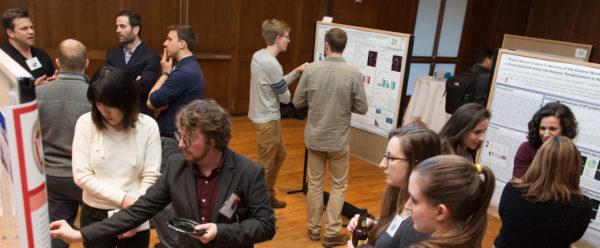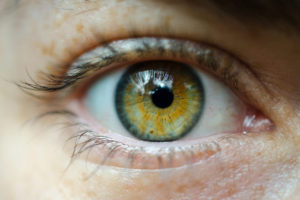Fueled by passion for their complementary fields of study, 25 years ago, Ned H. Kalin, MD, and Richard J. Davidson, PhD, founded and hosted the Wisconsin Symposium on Emotion. Each year since then, that passion has been palpable among participants, including psychiatrists, psychologists, scientists, clinicians, mental health professionals and all levels of trainees.
Such was the case in April 2019, when nearly 300 participants from within and beyond the University of Wisconsin-Madison gathered at Union South for a two-day meeting of the minds, sponsored by the HealthEmotions Research Institute (HERI) and co-hosted by Kalin and Davidson.
“The 25th annual symposium attracted leading experts to share insights on a range of topics related to the neurobiology of emotion and the complex interplay between the brain, psychiatric illness and health,” explains Kalin, the Hedberg Professor and Chair of the Department of Psychiatry at the UW School of Medicine and Public Health (SMPH) and director of the HERI.
The event’s focus on affective neuroscience—the study of the neural mechanisms underlying emotion—drew participants who are interested in the interdisciplinary field that combines neuroscience with the study of emotion, mood, personality, attention, learning, cognition and behavior.
At the symposium, internationally renowned experts tell one-hour stories about their research programs, providing the audience a glimpse into their processes, findings and intellectual trajectories. This format, followed by a discussion period led by Wisconsin trainees, provides a unique opportunity for scientists and clinicians-in training to interact with leaders in affective neuroscience. Poster sessions and break-out sessions provide further opportunities for developing researchers to learn, receive feedback and network, notes Davidson, the William James and Vilas Professor of Psychology and Psychiatry.
Another highlight of the meeting—its competitive Travel Award Program—boosts attendance among student researchers from throughout the United States. Grants allow 25 of the next generation of scholars to attend and present their research posters.
In the words of a 2019 travel award winner, Patricia Pehme, “It was one of the most exciting, intellectually stimulating and fun conferences I have attended.”
A doctoral student at the City University of New York, Pehme adds, “Many conferences claim to be ‘trainee-friendly,’ however, they remain impermeable to budding attendees. Here, I felt welcomed and respected as an aspiring professional. … All the wonderful speakers made us feel like we belonged by giving a platform to speak intimately with leading thinkers and fellow trainees—an indispensable opportunity to boost our confidence and stir the wheels of creativity, which then gives harvest to good science.”







